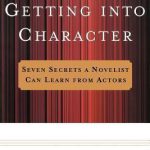 One of the most common reasons authors push back against suggested edits is author voice—they’re convinced that everything they write is part of their voice, therefore any edits will change their voice.
One of the most common reasons authors push back against suggested edits is author voice—they’re convinced that everything they write is part of their voice, therefore any edits will change their voice.
That’s partly true, in the same way that a voice teacher changes a singer’s voice.
Professional opera singers spend years training and fine tuning their voices, not because they’re terrible singers, but because they don’t want to be good opera singers. They want to be great. They also want to strengthen their vocal muscles so they can enjoy a long, productive career.
How, then, do authors train, strengthen, and fine tune their voices? It starts by understanding what we mean by “voice.”
An Author’s Voice
Simply put, an author’s voice is his or her unique perspective on life. That perspective manifests itself in how the author writes.
For example, if I set a painting on an easel and asked five authors to describe it, their interpretation and expression of that painting is their voice. That does not mean, however, that the writing is without errors or weaknesses.
Fine Tune Your Voice
Before you start training and strengthening your voice, you need to figure out how to do it. That means finding out your weaknesses so you can strengthen them.
If your editor says you have too much telling in your book, don’t try to justify the telling. Instead, ask for examples of unnecessary telling and suggestions for eliminating it. If your dialogue is boring, your characters are stereotypical, or your settings are bland, learn how to change it.
As you learn and apply good fiction-writing techniques, your voice won’t change into someone else’s; it will become a clearer expression of you.
Training & Strengthening Your Voice
Once you’ve fine-tuned your voice, it’s time to train it. You train your author’s voice the same way you train any muscle in your body—practice.
Vince Lombardi is often misquoted as saying, “Practice makes perfect.” What he actually said was, “Practice does not make perfect. Only perfect practice makes perfect.” A quarterback won’t improve if he throws the ball wrong over and over again; he improves when he corrects his form and practices the new improved technique.
The same is true for writers.
If you don’t implement the fiction-writing techniques you’ve learned, you will simply train and strengthen the bad habits you already have. But as you incorporate more engaging techniques over and over again, you will train yourself to show without so much effort. Like a professional quarterback, you’ll develop muscle memory that will write stronger, clearer voice with each story.
The Hard Work
Opera singers don’t rehearse until they get a part in a show, then stop. Professional football players don’t practice every day until they sign a contract, then stop. Successful pros never stop training—neither do success authors.
Your muscle memory will never be perfect, and sometimes life will distract you from completely focusing on your writing. That’s why authors with 10, 20, or 50 books published still work with editors. They continue to ask other professionals to help them find weak spots so they can continue to strengthen their stories and writing skills. The continue to strengthen their voices.
Author voice is the most natural aspect of writing while also requiring dedication and hard work to make it shine. The effort, however, is worth it.
If you have questions about author voice, leave a comment or contact me at karin@writenowedits.com.
For more fiction-writing tips and advice, follow me on Facebook at Writing Now Editing, or sign up for my monthly newsletter and learn the easiest way to make a good impression with agents and publishers!
















